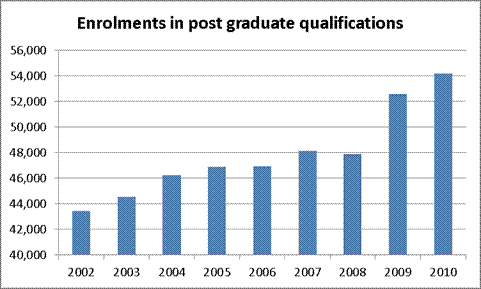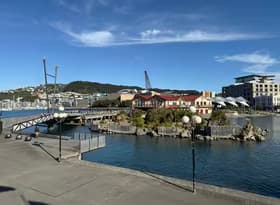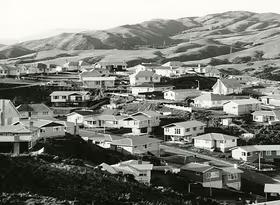The career effects of graduating in a recession
When I entered the labour market as a young graduate in South Africa in the early 1990s there were plenty of jobs to pick and choose from. If I had graduated twenty years later my life story could be very different. Research shows that entering the labour market during a recession can have negative consequences that take years to overcome, if they are overcome at all.
An economic recession is tough on everybody, but is particularly tough for young people entering the labour market for the first time. Without any work experience to their name they have to compete with all the other new entrants as well as job seekers already in the labour market. Young people tend to be the 'first out’ and 'last in’ during times of economic recession.
It is unsurprising then that during the recession the youth unemployment rate has soared. The unemployment rate for 15 to 24 year olds reached nearly one in five in New Zealand during 2011. The longer this unemployment persists, the greater the threat of a long-term scarring effect due to youth becoming discouraged and less employable.
While it is the unskilled new labour market entrants who are most at risk during a recession, a recent academic paper by Oreo Poulos, vonWachter, and Heisz shows that skilled graduates can also be significant losers. During a recession, graduates typically start out with employers that are smaller on average and pay less. In the early years of employment, the earnings of those that graduate (and manage to find a job) in a recession are on average nearly 10% lower than those who graduate during growth years, at the same points in their careers. These losses slowly recede, halving within five years and for most graduates have dissipated by ten years.
Luck clearly matters as the authors show that the wage deficit experienced by recession graduates is strongly influenced by economic conditions in the very first year after leaving university.
Other factors are less influenced by luck. Without a doubt, those with a tertiary qualification do better in the marketplace but the type of qualification earned is a significant determinant of the extent of income loss. Those with degrees in low demand in the labour market suffer significantly larger and much more persistent earnings losses than those with high demand qualifications. Those who graduate with the highest predicted earnings, like doctors, lawyers and engineers tend to be the least affected. Those with the least marketable qualifications may experience permanent earnings losses when graduating in a recession.
Another study by Yale academic Professor Lisa Kahn shows that starting work during a recession reduces job mobility at a vital time in a person’s career. Job mobility is crucial in the early years as it helps the worker match their skills with the needs of the employer and settle on a particular line of business or industry. On average, those beginning work in tough economic conditions remain for longer tenures at their jobs and are unable to fully shift into better positions after the economy picks up. While mobility is reduced the research shows that those actively changing jobs can more quickly overcome the wage deficit incurred by the recession.
If career prospects are heavily influenced by economic conditions at the time of graduation does it pay to postpone entering the labour market until the economy recovers? Professor Kahn estimates that foregoing a year or two of earnings and waiting for better opportunities could result in a smaller overall loss than the losses associated with taking a poor job during a recession.
For those that can afford to wait, further study is a logical choice. The returns to further education are high although they vary according to their marketability. Employers seeking new recruits for quality jobs generally prefer fresh graduates over the unemployed or underemployed. Further study is clearly an option taken up by many young Kiwis as enrolments in postgraduate qualifications have soared in recent years (see graphic).
Students who graduated during the current recession face a tough start to their career. But there are a few strategies that can limit the long term scarring. Job mobility is important and every step should be taken to avoid being stuck for too long in jobs in which you are underutilised. Delaying entry into the labour market by enrolling for further education or developing other life skills is preferable to accepting an inferior job. Earning top grades and being more marketable than the rest is more important than ever. The message is clear; choose what you study carefully.

Source: Ministry of Education
Enrolments in post graduate qualifications in New Zealand have soared as students delay entry into the labour market


















